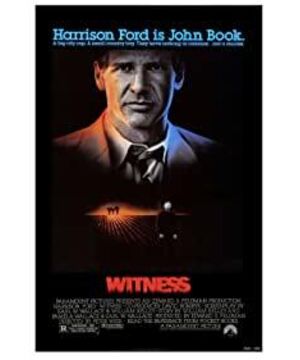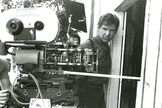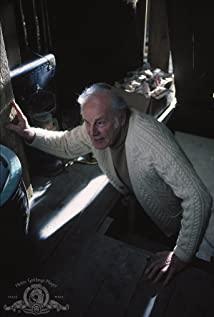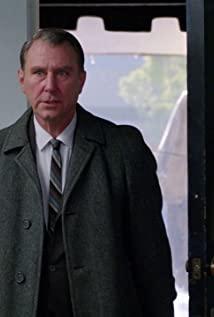When I watched this film introduction on "Universal Screen" ten years ago, I never imagined that I would watch it quietly in an Internet cafe thousands of miles away in ten years' time.
Mr. Indiana Jones and his famous old felt hat have dumped the hearts of beautiful people in the world, but I have been thinking about Harrison Ford’s small movie that is said to be a combination of case and poetry (relatively In the so-called "big production").
The Mennonites are a sect of Protestantism. They believe in the teachings of the 16th-century Dutch reformer Mennon Simmons, oppose the establishment of a state religion, refuse to join the army, and prohibit the use of weapons or any violence. Mennonite believers lived in the countryside for a long time and engaged in agriculture and handicrafts. They dressed very plainly and lived a simple and traditional way of life. When the director put the Philadelphia policeman Booker, who was busy fighting violence all day long, into the Mennonites' settlement, the direction of the story can be imagined. The conflict between mainstream culture and niche beliefs is inevitable. , The gap between the hustle and bustle of the city and the quiet village is obvious, of course, you must sprinkle the chicken essence of love as usual.
But when the film’s simple colors and concise composition arrived, the calmness and purity of the images in the 1980s still instantly infiltrated my eyes and heart.
Mennonite men’s black coats, straw hats and women’s dark long skirts look like the prevailing minimalist style today, simple and noble. Kelly, a young widow, sat in the midst of the surging crowd, calm and elegant like Jane Eyre. After the deceased husband’s funeral is over, she and her son Samuel will go to relatives in other places to relax.
Samuel, who had just received a cute toy pony from his family at the last moment, witnessed a bloody murder in the toilet of the train station at this moment, and became the only witness in this case.
The man I was looking forward to, the policeman Booker played by Ford, finally appeared.
Even if I held my breath, Ford from 20 years ago made my heart tremble slightly, and the extremely young face shook in front of my eyes, so that people did not dare to recognize each other.
After a surprise attack, Booker discovered that it was not only the black police officer that Samuel had just identified, but the boss he had just met was also involved in the case. The only thing we can do now is to send the mother and son back to the Mennonite settlement overnight, without disturbing their lives.
But unfortunately at the same time, fortunately, because of too much blood loss, he himself had to avoid this place temporarily.
The most moving part of the film unfolded from this.
Kelly used the remedy that the elders said to apply the wound to Booker. The first thing Booker saw when he woke up was a circle of the faces of the men next to him, ——Mennonite elders gathered around his bed. After a lap, he breathed a sigh of relief for his escape. Booker, sleepy-eyed, looked at them with the kind of astonishment that fell into a bear hole.
Booker hid the cart in the hay shed, and got up at 4:30 in the morning to milk the cow, praying before meals, just like other Mennonite farmers, if it weren't for the fact that he still had a gun.
Samuel checked the drawer and found the gun filled with bullets by accident. When Booker hurried over to take out the bullet, unfortunately, he happened to be hit by Kelly. Thanks to Booker's quick response, he obediently handed the gun to her for safekeeping, but Kelly lifted it away like a dead mouse.
The violent pursuit is deliberately understated, and a lot of space is devoted to Booker's life with the Mennonites.
He worked with the Mennonites in Kelly’s deceased husband’s clothes that did not fit, and finally had the opportunity to show off his hidden carpentry work, while also resisting the jealousy of Kelly’s admirers and the rumors of the tribe.
The emotional scenes with Kelly, from paying attention to each other, dancing in the hayloft, to kissing in the wilderness, were handled in an orderly manner.
The part where Mennonite men build the barn together is like a modern dance, which is the colorful part of the film.
My favorite is the moment Booker picked up the gun again:
Kelly, who was busy in the kitchen, opened the cabinet without hesitation, reached into a pile of daily household items, turned over, touched the gun, and handed it to the dumbfounded Booker.
There are still bullets, Booker said. Kelly handed him a salt shaker.
He opened the lid, grabbed a handful of it suspiciously, and blew it a few times, revealing a bullet with salt grains stuck to it.
Hahaha, I almost laughed when I saw this.
The difference between the living environment and the way of thinking of the two is presented calmly. Presumably, after Booker can't laugh or cry, his love for Kelly should be stronger: in the eyes of this beautiful woman, guns and bullets are no different from bread, butter, and seasonings. People here only understand nature and friendliness.
Just because of the subtlety of the location where Kelly hides the gun, I think Booker should stay.
It's a pity that he didn't stay. This is also one of the reasons why I am very dissatisfied with the love portrayal in this film.
After a barn battle, the black policeman and the white boss who hunted Booker got their due punishment. Booker was neither indulged in his love with Kelly, nor was he infatuated with Samuel’s little angelic face, nor was he inspired by the tender little rose buds in the grasses of the Mennonite settlement, and he did not even give With a kiss, Kelly walked to the car that came. Since the director has touched the Mennonites' home life with the camera so affectionately, and captured the most meaningful emotional details between the hero and heroine, in the end he made the women so introverted and the men so dull and totally different.
I don’t know what Peter Phil’s original intention was for the filming of this film 20 years ago. As far as I am today, the most moving meaning of this film is not in the contrast and choice of various ways of living (comparison is a means, not an end). It lies in the yearning and longing for the pure and beautiful life in the world. Booker's Mennonite journey is nothing more than a dream.
View more about Witness reviews











